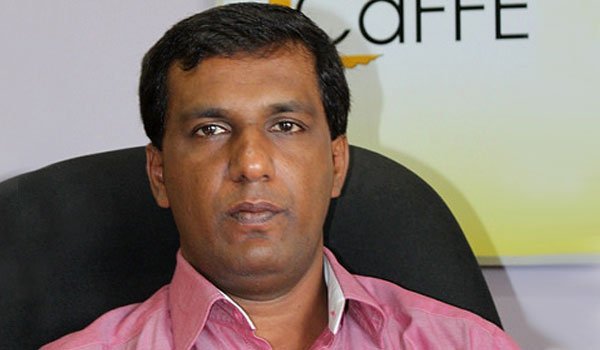Attending the Cabinet Press Briefing, State Minister of International Trade Sujeewa Senasinghe said that United National Party (UNP) members of Committee on Public Enterprises (COPE) posed a number of questions to Auditor General regarding its report on the controversial Treasury Bond scams.
Earlier this month Anti Corruption Front spoke of ‘gimmick politics of anti corruption’ and the above two instances are prime examples of this.
COPE is an institution ‘established on 21.06.1979 to ensure the observance of financial discipline in Public Corporations and other Semi Governmental bodies in which the Government has a financial stake.’
Thus it has no mandate to examine private companies and it’s highly unlikely that Perera was not aware of this.
ACF believes that Perera’s attempt is to divert attention from Arjuna Mahendran and the members of the Monetary Board.
If the state minister believes that Perpetual Treasuries Limited must be investigated he can lodge a complaint with the FCID.
Instead he is playing a gimmick on Facebook, other social media outlets and the media.
Senasinghe’s statement seems, on the surface, looks fair.
Why shouldn’t the COPE members cross examine the Auditor General about any error or to clarify any doubts?
But if one takes a look at how the Auditor General's reports are produced, one wonders why the UNP members of Committee on Public Enterprises (COPE) suddenly decide to scrutinize the Auditor General's report.
Usually COPE uses information, observations and recommendations given by Auditor General, about a government institution, to question officials from the relevant institutions.
According to the constitution COPE is responsible for the initial reporting of the accountability of all state owned enterprises to tax payers and the Auditor General is entrusted to carry out an independent audit of all state owned enterprises and submit the reports to COPE.
Before submitting these reports the Auditor General shares his reports with the relevant institutions and obtains their views on his report.
Thus these institutions have the ability to submit their objections before a report is presented to COPE, which calls upon relevant officials and raise issues directly with tem based on the Auditor General's reports.
Since the Auditor General is appointed by the Constitutional council, based on his ability to carry out such audits and his professionalism and independence, Auditor General's report has never been questioned by COPE members.
Media has reported that on 24 October COPE chairman Sunil Handunnetti walked out of the chamber in which they had met after witnessing United National Party (UNP) members of the COPE ‘threatening’ the Auditor General. There were also reports that they UNP members had continuously harassed the Auditor General in previous sessions, questioning his impartiality.
“Given this context, it is obvious that the UNP is attempting to manipulate the COPE to clear former Central Bank Governor, Arjun Mahendran.
The attempt of the UNP to block the Bribery Commission investigation on the bond scam cost Dilrukshi Dias Wickremasingeh her job.
MPs have a social contract.
They are there to safeguard the inalienable sovereignty of the people; the primary interests of the nation and its people; and fundamental rights of the people.
ACF earlier had shown, for example, how the bond scam has adversely affect millions of EPF holders.
Thus the scam has violated the interests of the people and their fundamental rights and as MPs they should do whatever it takes to rectify the matter.
The UNP members of COPE must keep this in mind,” Rajith Keerthi Tennakoon, Advisor of ACF said.






